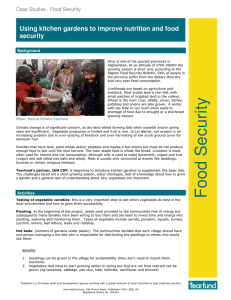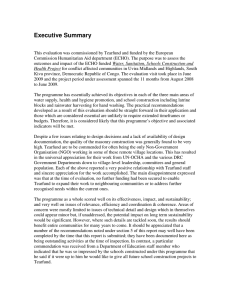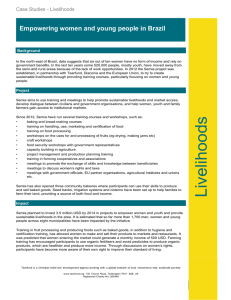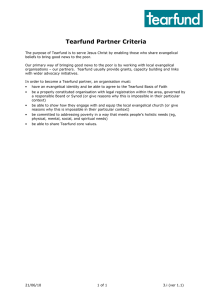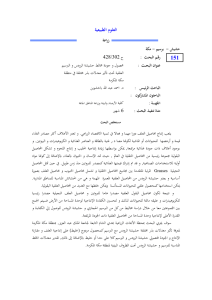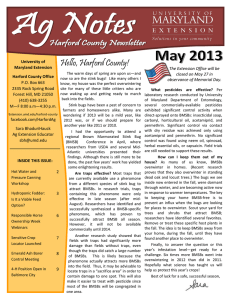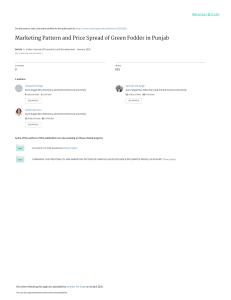Building the capacity of communities to withstand Background
advertisement
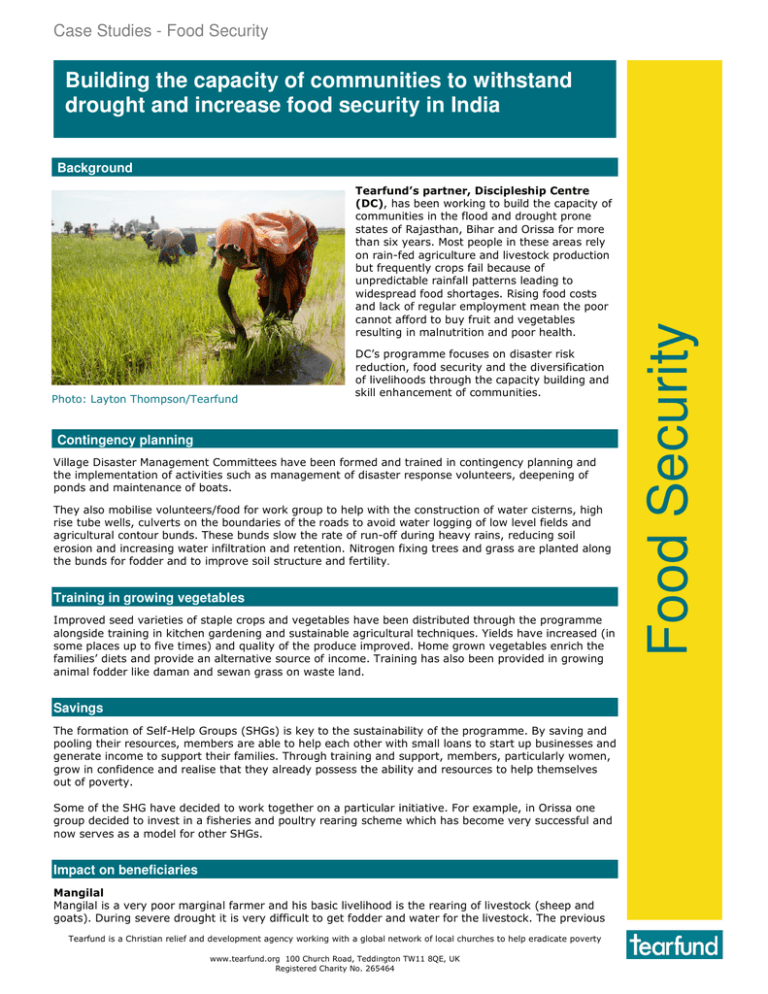
Case Studies - Food Security Building the capacity of communities to withstand drought and increase food security in India Tearfund’s partner, Discipleship Centre (DC), has been working to build the capacity of communities in the flood and drought prone states of Rajasthan, Bihar and Orissa for more than six years. Most people in these areas rely on rain-fed agriculture and livestock production but frequently crops fail because of unpredictable rainfall patterns leading to widespread food shortages. Rising food costs and lack of regular employment mean the poor cannot afford to buy fruit and vegetables resulting in malnutrition and poor health. Photo: Layton Thompson/Tearfund DC’s programme focuses on disaster risk reduction, food security and the diversification of livelihoods through the capacity building and skill enhancement of communities. Contingency planning Village Disaster Management Committees have been formed and trained in contingency planning and the implementation of activities such as management of disaster response volunteers, deepening of ponds and maintenance of boats. They also mobilise volunteers/food for work group to help with the construction of water cisterns, high rise tube wells, culverts on the boundaries of the roads to avoid water logging of low level fields and agricultural contour bunds. These bunds slow the rate of run-off during heavy rains, reducing soil erosion and increasing water infiltration and retention. Nitrogen fixing trees and grass are planted along the bunds for fodder and to improve soil structure and fertility. Training in growing vegetables Improved seed varieties of staple crops and vegetables have been distributed through the programme alongside training in kitchen gardening and sustainable agricultural techniques. Yields have increased (in some places up to five times) and quality of the produce improved. Home grown vegetables enrich the families’ diets and provide an alternative source of income. Training has also been provided in growing animal fodder like daman and sewan grass on waste land. Savings The formation of Self-Help Groups (SHGs) is key to the sustainability of the programme. By saving and pooling their resources, members are able to help each other with small loans to start up businesses and generate income to support their families. Through training and support, members, particularly women, grow in confidence and realise that they already possess the ability and resources to help themselves out of poverty. Some of the SHG have decided to work together on a particular initiative. For example, in Orissa one group decided to invest in a fisheries and poultry rearing scheme which has become very successful and now serves as a model for other SHGs. Impact on beneficiaries Mangilal Mangilal is a very poor marginal farmer and his basic livelihood is the rearing of livestock (sheep and goats). During severe drought it is very difficult to get fodder and water for the livestock. The previous Tearfund is a Christian relief and development agency working with a global network of local churches to help eradicate poverty www.tearfund.org 100 Church Road, Teddington TW11 8QE, UK Registered Charity No. 265464 Food Security Background Case Studies - Food Security year was especially bad for Mangilal since the yield from his field was drastically low and he found it very difficult to sustain his family. Using awareness and knowledge gained through the project, and with the help of DC, he constructed bunds around his 1.5 acres of land. Soon afterwards, with the onset of the first rains, Mangilal sowed pulses in his field but due to the failure of subsequent rains they failed to grow and he was unable to reap a harvest. However, the bunds meant that the soil retained a little water from the first rains and the trees in the field turned green meaning fresh fodder was available for the goats. The animals are better sustained, milk production has increased and the family has a higher income through the sale of male goats. Haringa Ram Like many farmers in Rajasthan, Haringa Ram is dependent upon the monsoon rains for his agriculture. Previously this meant he was generally limited to one crop per year and animal fodder was only available for 3-4 months. Sometimes he had to take loans from moneylenders to buy fodder for his cattle and grain for his family. Very happy about the result, Haringa Ram, pointing to the khejri trees on his farm, says, “See…they are still green and look at the trees of other farms. This year I am not worried about fodder or food for my family.” Tearfund is a Christian relief and development agency working with a global network of local churches to help eradicate poverty www.tearfund.org 100 Church Road, Teddington TW11 8QE, UK Registered Charity No. 265464 Food Security Through the project, bunds were constructed on his farm meaning the soil retains moisture for a longer period. He is now able to grow two crops and he has enough fodder and grain to last all year. He has repaid his debts and also opened a savings account in the bank.
